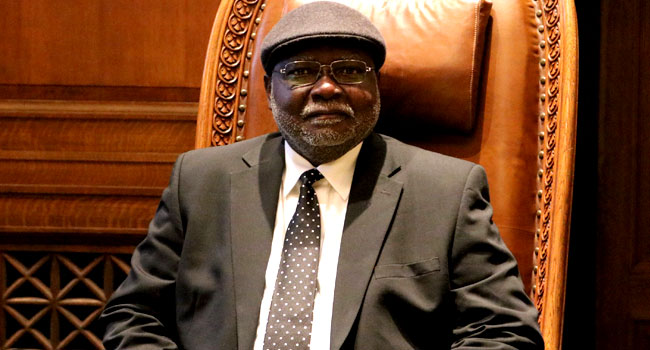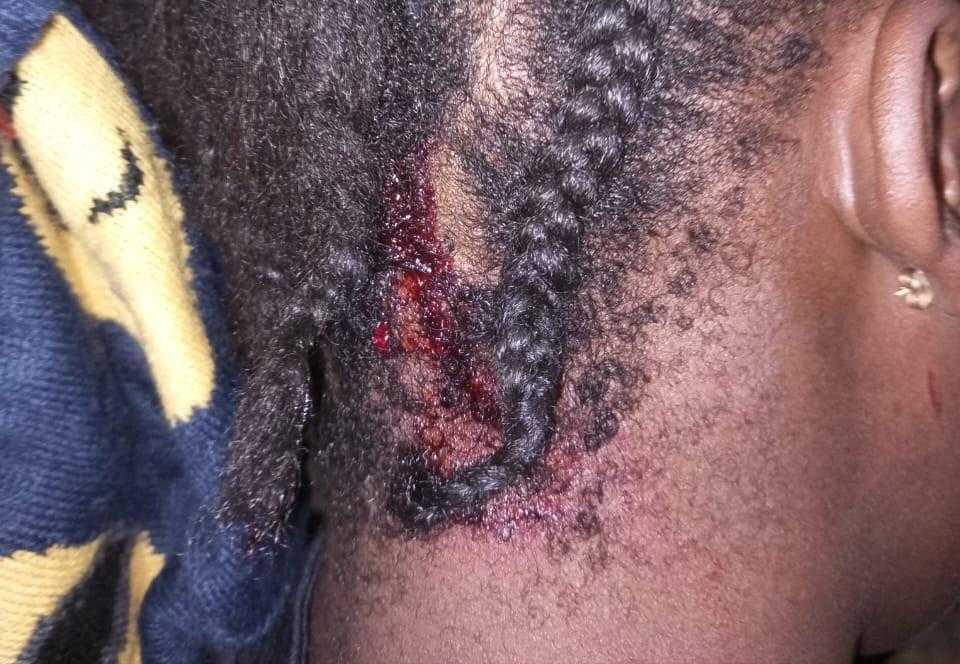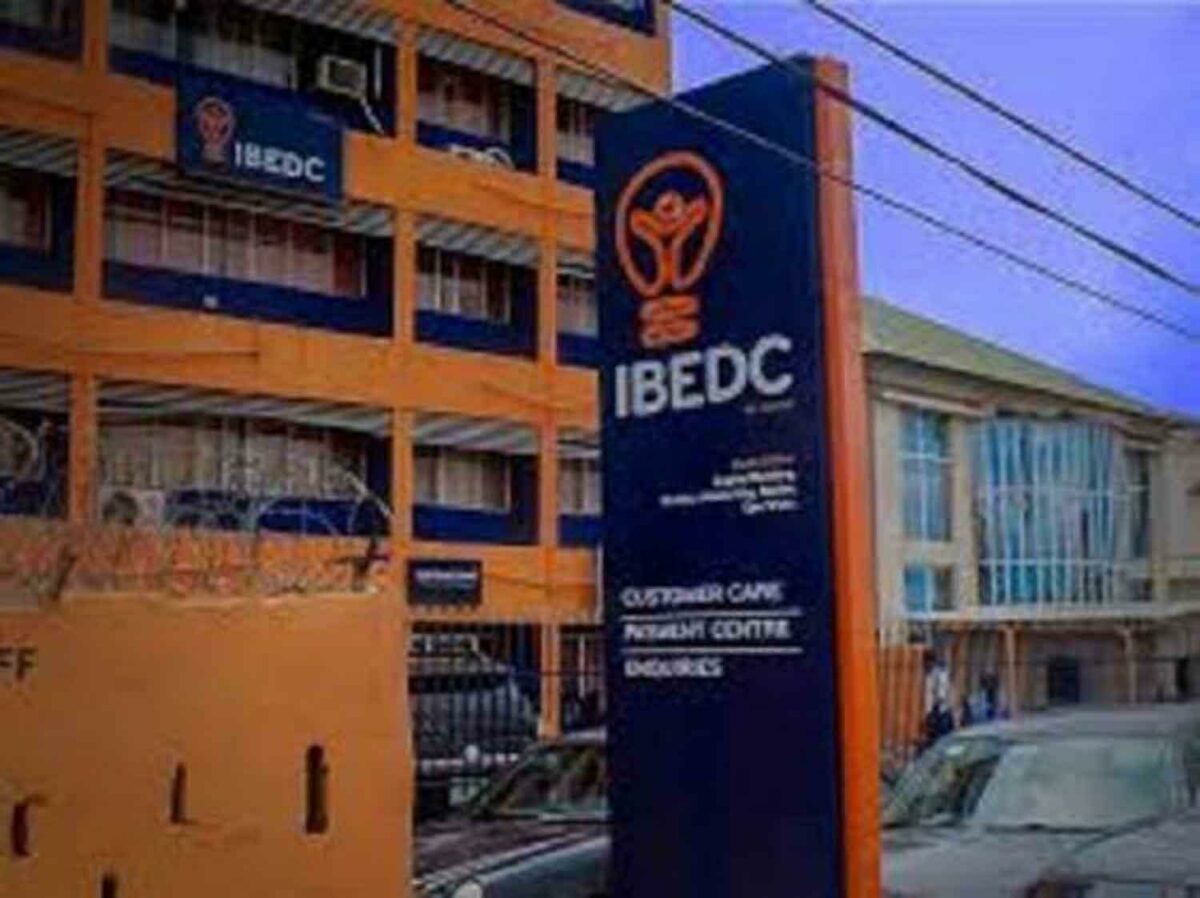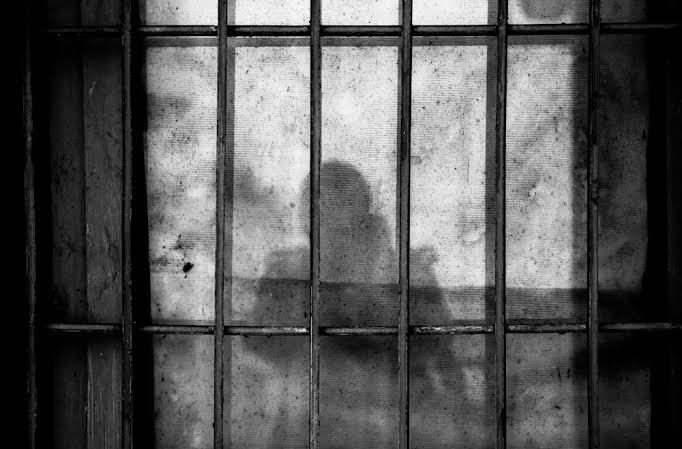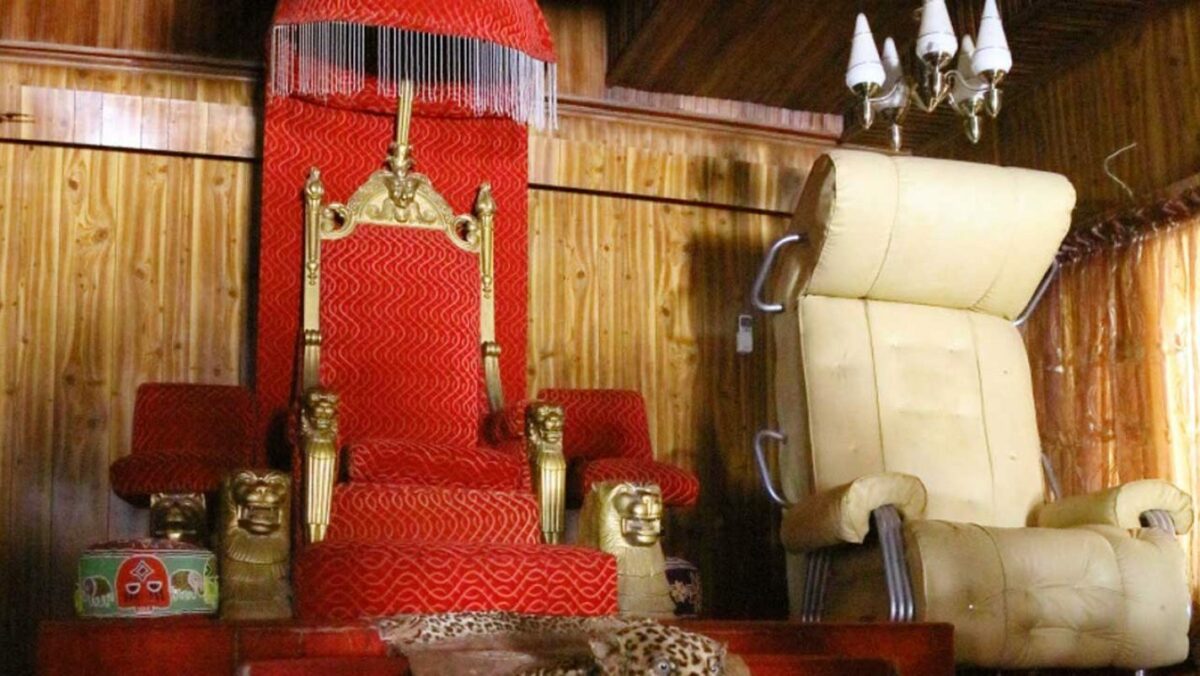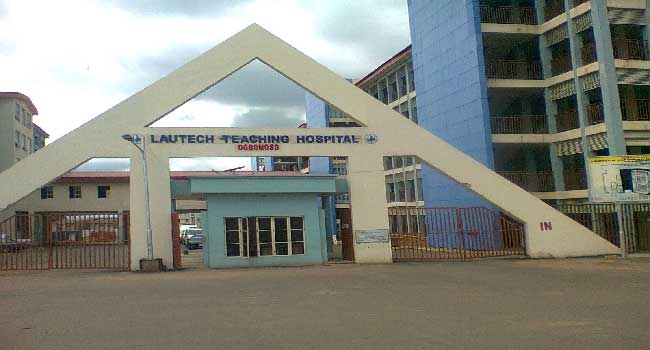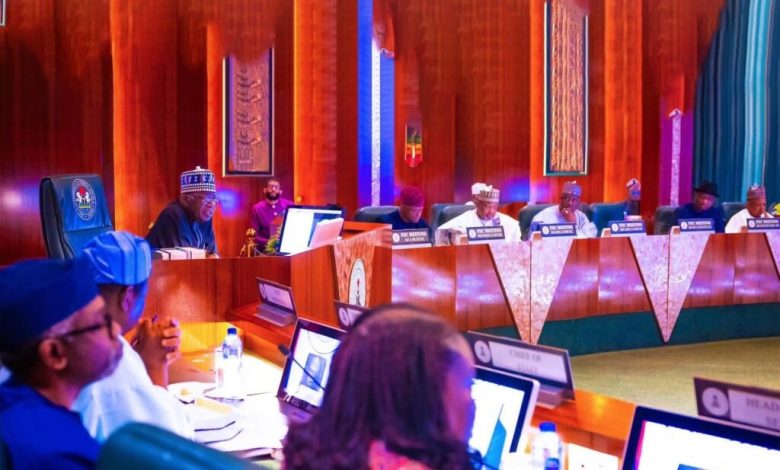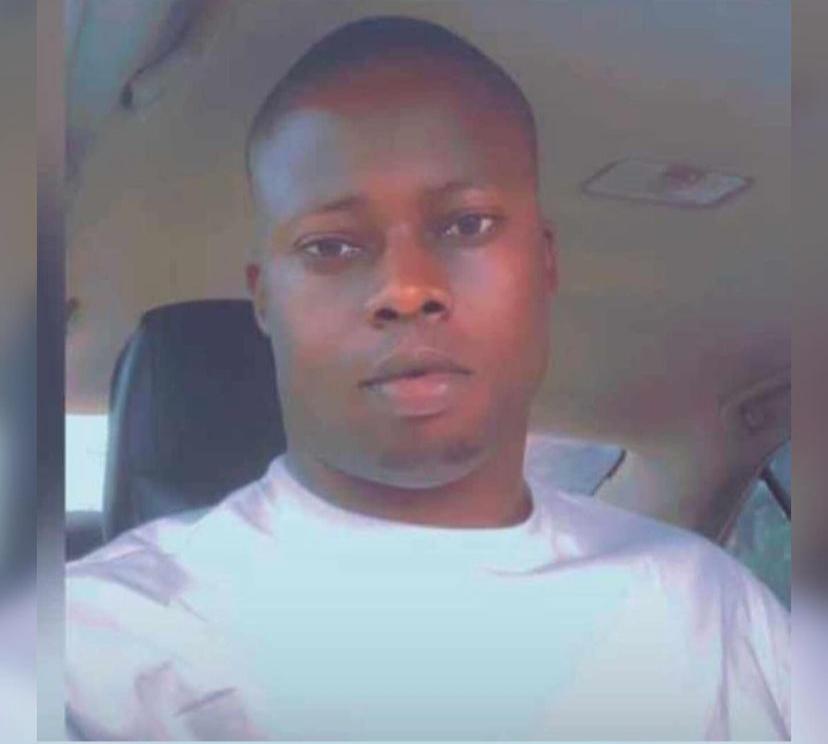On Monday, copies of a petition filed by Peter Obi, the Labour Party presidential candidate, challenging the victory of Bola Tinubu, the presidential candidate of the All Progressives Congress (APC), who was declared president-elect by the Independent National Electoral Commission (INEC) after the election held on February 25, surfaced online.
Obi, among other prayers, wants the Court of Appeal to disqualify Tinubu over his alleged conviction in the US in 1993 for drug dealing.
Obi’s petition holds that Tinubu “was fined $460,000 for an offence involving dishonesty, namely narcotics trafficking imposed by the United States District Court, Northern District of Illinois, Eastern Division, in case no:93C 4483″.
This prayer has generated much debate between the supporters of the president-elect and those opposed to his emergence. While some say his forfeiture of the sum does not prove conviction or perpetration of a crime, others opine that a crime led to the forfeiture.
READ MORE: SUMMARY: 4 Things Peter Obi Wants From Court
FIJ has now found an earlier ruling in which Olukayode Ariwoola, the current Chief Justice of Nigeria (CJN), while serving as a Supreme Court justice, declared that forfeiture means “the loss of a right, privilege or property because of a crime”.
MOHAMMED ABACHA V FEDERAL REPUBLIC OF NIGERIA (2014)
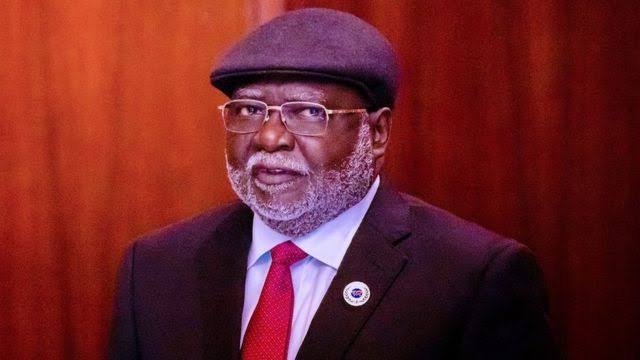
When the Federal High Court, the Court of Appeal and the Supreme Court all agree on one ruling, it most definitely is ironclad. Two of the justices who passed the verdict at the Supreme Court also went on to become the Chief Justice of Nigeria (CJN) at different times.
On January 17, 2014, when Ariwoola delivered judgement in a case between Mohammed Abacha, the second child of Sani Abacha, a former head of state; and the Federal Republic of Nigeria. One of the seven men on the panel of justices was Walter Onnoghen, a former CJN.
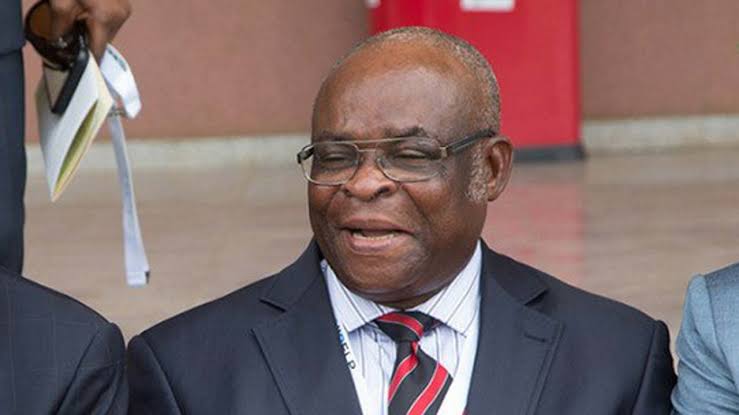
Abacha was challenging an appeal court judgement delivered on April 18, 2005. The Federal Government, through the Attorney-General of the Federation (AGF), had charged Abacha to court for the offences of conspiracy, receiving stolen property, dishonesty and concealing stolen money, all pursuant to sections 97(i), 317 and 319 of the Penal Code.
After the High Court and the Appeal Court found Abacha guilty, justices Ariwoola, Onnoghen, Muhammad Muntaka-Coomassie, Fabiyi, Suleiman Galadima, Nwali Ngwuta and Kudirat Kekere-Ekun had the final word on the matter.
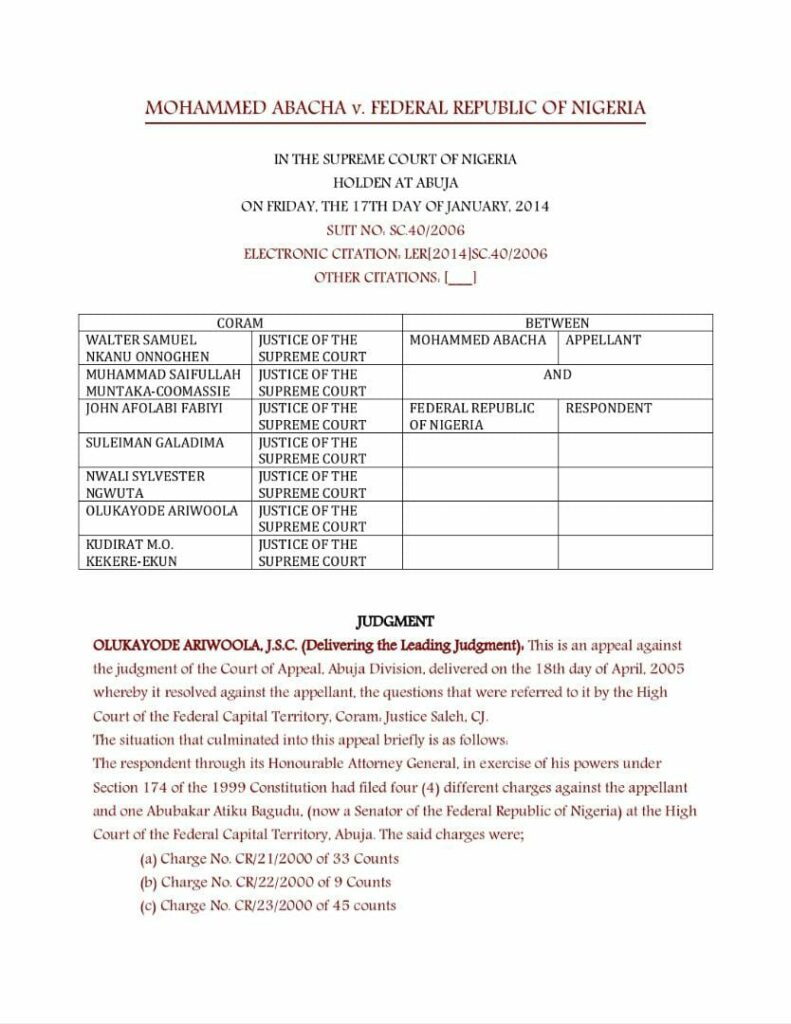
ARIWOOLA’S RULING
“The appellant is the second son of late General Sani Abacha who was the Head of State and Commander-in-Chief of the Armed Forces of the Federal Republic of Nigeria. While in office between 17th November, 1993 and 8th June, 1998 the appellant’s father was alleged to have instructed one Alhaji Ismaila Gwazo, who was then National Security Adviser to the Head of State to apply for various sums of monies to be withdrawn from the Central Bank of Nigeria for ‘security reasons,'” Ariwoola ruled.
“The late General Abacha approved the said various sums. In the result, the sum of $1,568,48317.03 and £416,472,000 were withdrawn from the Central Bank of Nigeria through the appellant and one Abubakar Atiku Bagudu into their private foreign accounts in various countries. The said funds were delivered to the late General by Alhaji Gwarzo while the appellant collected from his father and transferred same to Abubakar Atiku Bagudu who carried the money abroad and lodged into their said various foreign bank accounts where the appellant and Bagudu were the only signatories.
READ ALSO: Ex-Liberian President Sirleaf DeletDs Congratulatory Tweet to Tinubu
“The said monies lodged in the foreign accounts were still in the accounts when the above charges were filed and the accounts were frozen.
“Upon the demise of General Sani Abacha, General Abdulsalam Abubakar came into power. His government lasted up till 29th May, 1999 when after a general election, he handed over power to the civilian Head of Government – Chief Olusegun Obasanjo. During the period General Abdusalam Abubakar was in office, he set up a Special Investigation Panel to look into activities of the administration of late General Sani Abacha. The said panel was to investigate and recover monies illegally acquired by Public Officials and their agents.
“The panel investigated part of the case and recovered monies, properties and assets which led to the promulgation of forfeiture of assets, etc. (Certain Persons) Decree No. 53 of 1999. By the said decree, both the appellant and his father, the late General forfeited their assets to the Federal Government. The said forfeited assets are contained in the schedule to the Decree. The panel was still investigating when the military handed over power to civilian administration of Chief Obasanjo which continued the investigation and recovery. The recovery and forfeiture led the Hon. Attorney General of the Federation to file the four criminal charges (supra) against the appellant and Abubakar Atiku Bagudu.
“The appellant and Abubakar Atiku Bagudu filed various interlocutory applications the last of which was a Motion on Notice dated 28th March, 2001 in which they prayed for the suspension of consideration of the application and delivery of its ruling thereof by the trial court and to refer to the Court of Appeal three questions of law.
“Notwithstanding the objection to the reference, by the respondent, the trial court granted the application on 9th April, 2001 and referred the following questions pursuant to Section 295(2) of the 1999 Constitution.”
Abacha’s argument was that he forfeited the sums in compliance with the decree, and not as a punishment for committing a crime. Ariwoola and the six other judges disagreed.
Ariwoola’s ruling further read, “The whole purpose of this ad hominem legislation, as clearly stated in Section 1 of the Decree, was to recover from the persons named therein properties and monies acquired corruptly and illegally by them. Bearing in mind that in interpreting a statute, the court must avoid absurdity it is necessary to juxtapose the term ‘forfeiture’ with ‘indemnity’ to ascertain the intention of the lawmaker. Black’s Law Dictionary, 8th edition at page 677 defines ‘forfeiture’ thus:
- The divestiture of property without compensation.
- The loss of a right, privilege or property because of a crime, breach of obligation or neglect of duty.” It goes on to say ‘title is instantaneously transferred to another, such as the govt., a corporation or a private person’. Therefore forfeiture connotes punishment for a crime committed and its effect is instantaneous. ‘Indemnity’ is defined at page 784 (supra) as
- A duty to make good any loss, damage or liability incurred by another.
- The right of an injured party to claim reimbursement for its loss, damage or liability from a person who has such a duty…’ ‘Indemnity’ and ‘forfeiture’ are clearly diametrically opposed to one another. A person who has forfeited property on the basis of a crime cannot be entitled to indemnity. Forfeiture is a form of punishment. There is no indemnity in our criminal procedure.”
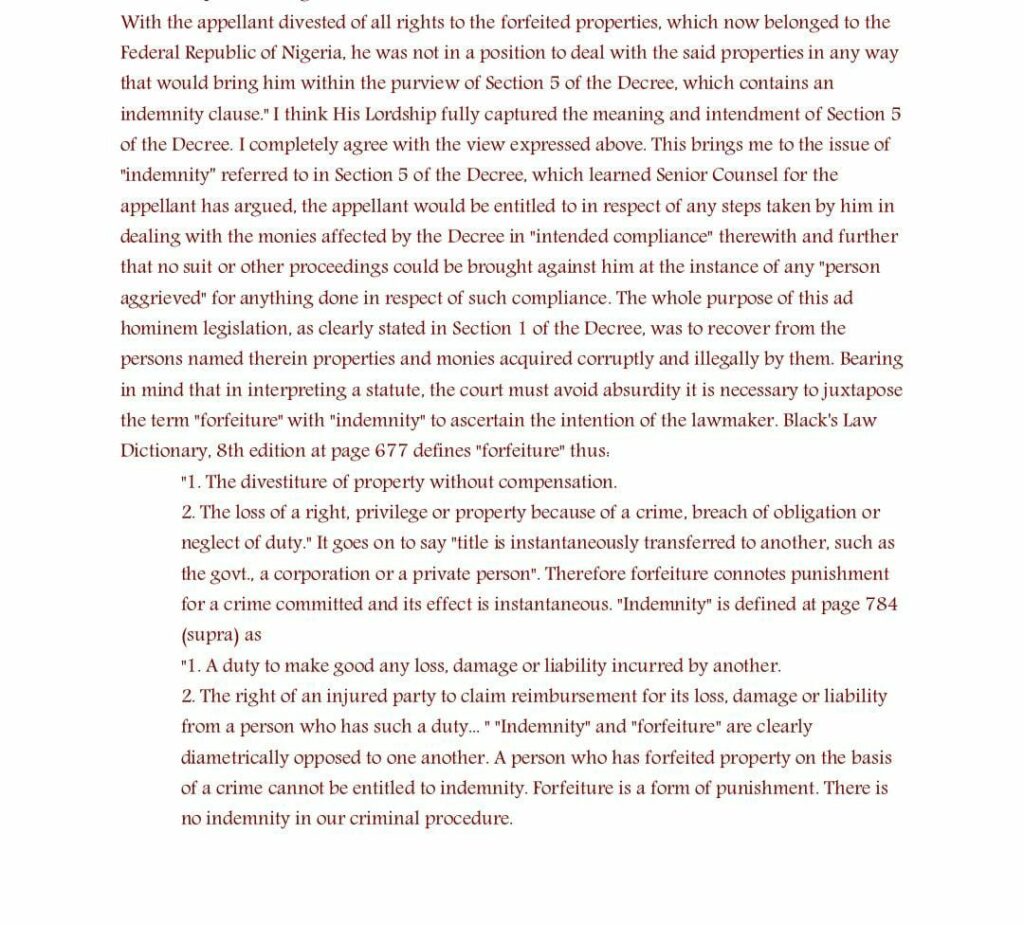
When FIJ called a former member of the Nigeria Bar Association (NBA)’s leadership, he said Tinubu’s case was quite different. This lawyer said the peculiarities of the case would need the court to determine if the US court’s ruling had relevance in Nigeria.
According to Section 137 (e) of the 1999 Constitution as amended, a presidential candidate can be disqualified if within a period of less than 10 years before the date of their election to the office of the president, they were convicted and sentenced for an offence involving dishonesty or found guilty of violating the Code of Conduct.
Monday Ubani, a former Vice President of the NBA, told FIJ that this section meant that any other candidate in the election could bring the matter up before a tribunal if a candidate was running for office before the 10-year period was over.
He, however, refused to comment on Obi’s petition as it was pending in court.
Tinubu’s forfeiture happened 30 years ago, and falls well outside the 10-year period as stipulated in Section 137.
It remains to be seen how the court will rule on the matter.
Subscribe
Be the first to receive special investigative reports and features in your inbox.


